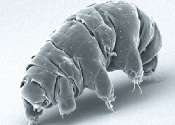Major depression is the leading cause of disability worldwide, and in 2000 was the fourth leading contributor to the global burden of disease (measured in DALYs); it is also an important risk factor for suicide. It is understandable, then, that clinical depression is thought to be a pathology — a major dysfunction of the brain. Yet the epidemiology of clinical depression is something of an outlier when compared to the epidemiology of major dysfunctions of other organs like the heart, liver, lungs and kidneys[citation needed]. In most cases, rates of organ dysfunction increase with age, with low rates in adolescents and young adults, and the highest rates in the elderly. These patterns are consistent with evolutionary theories of aging which posit that selection against dysfunctional traits decreases with age (because there is a decreasing probability of surviving to later ages).
In contrast to these patterns, prevalence of clinical depression is high in all age categories, including otherwise healthy adolescents and young adults. In one study of the US population, for example, the 12 month prevalence for a major depression episode was highest in the youngest age category (15–24 year olds). The high prevalence of depression is also an outlier when compared to the prevalence of major mental retardation, autism, and schizophrenia, all with prevalence rates about one tenth that of depression, or less.
The common occurrence and persistence of a trait like clinical depression with such negative effects early in life is difficult to explain. (Rates of infectious disease are high in young people, of course, but clinical depression is not thought to be caused by an infection.) Evolutionary psychology and its application in evolutionary medicine suggest how behaviour and mental states, including seemingly harmful states such as depression, may be past adaptations to recurring reproductive problems faced by our ancestors, actually having improved however disadvantageous in the modern world, the fitness of either the individual or their relatives. It has been argued, for example, that Abraham Lincoln's life-long depression was a source of insight and strength. Some even suggest that "we aren’t designed to have happiness as our natural default" and so a state of depression is the evolutionary norm.
The following hypotheses attempt to identify a benefit of depression that outweighs its obvious costs. All take as their starting point the fact that one of the most potent, well-established causes of major depression is a severe negative life event.









